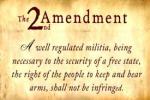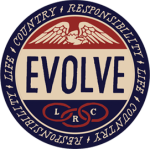Now that Anthony Anderson has replaced Bill Cosby as the African-American whose family life proves that most families face the same, universal problems regardless of race, the show’s writers have to come up with situations reflecting issues that come up when everyone’s sitting around the dinner table, or running off to school in the morning, or getting ready for bed. That being the case, what better issue to inject onto the screen in Black-ish’s second episode this season than the issue of guns?
And before I go any further, I just want to remind my readers that the gun industry has been trying like all get out to convince African-Americans to own guns because the typical gun owner, an older White man like me, owns more guns than he knows what to do with them anyway, so demographics like minorities, women and new immigrants hopefully represent new consumer targets who need to be convinced to buy guns. It hasn’t worked in the African-American community, by the way, no matter how many times Colion Noir prances around on the NRA video screen. Nor have women been flocking into gun shops because a pathetic, Sarah Palin wannabe named Dana Loesch stands there in a tough leather outfit delivering a vapid monologue on how her gun protects her family from thugs.
The “Rock, Paper, Scissors, Gun” episode of Black-ish on the other hand, is both funny and profound, the former because the script simply doesn’t miss a trick when it comes to spoofing just about every sacred cow we have; the latter because interspersed with terrifically comic lines are serious statements about guns and gun violence that honestly capture both sides of the gun debate. The argument about guns, after all, gets down to whether the benefit derived from using a gun for self-defense outweighs the risk of keeping an altogether lethal consumer product around the home. And if you listen closely to the dialogue, you’ll realize that the folks who created this script for Black-ish have taken the trouble to read and understand both the obvious and the subtle issues that inform the gun debate.
Example: Dre wants a gun in the house, his wife Bow does not. In fact, men are much more likely to be gun owners than women by a margin of eight or nine to one. Example: Miles, the six-year old, gets very excited over the prospect of a gun, his older brother Andre, who spends all his time on the computer, couldn’t care less. In fact, young children are the most vulnerable to gun accidents because they are naturally curious, have no sense of risk and everything to them is a toy.
Finally Bow gives in and Dre goes out to buy a gun. There’s a remarkably funny moment inside a gun shop involving an older Asian-American woman who has just bought a shotgun, but I’ll leave its description unsaid. So now the gun is in the house and one night it sounds like the veritable bad guy has broken in so everyone crowds into Dre’s bedroom because he’ll protect them with the gun. Except that the door opens and in stumbles Dre’s father played perfectly by Laurence Fishburne who doesn’t get shot only because Dre can’t figure out how to actually use the gun.
Of course the show has already come in for the usual stupid and snarky comments from the pro-gun gang, but there’s no question that Black-ish captures the truth about the risks embodied in owning a personal-defense gun. And the final moments invoke a very profound insight when Dre confesses to his father that the reason he wants to own a gun is because he felt scared as a young boy and wished he had a real gun back then. The GVP community often finds pro-gun fervor to be inexplicable and difficult, if not impossible, to understand in logical terms. Is there a chance that Dre’s admission of childhood fears provides an important clue?




Recent Comments